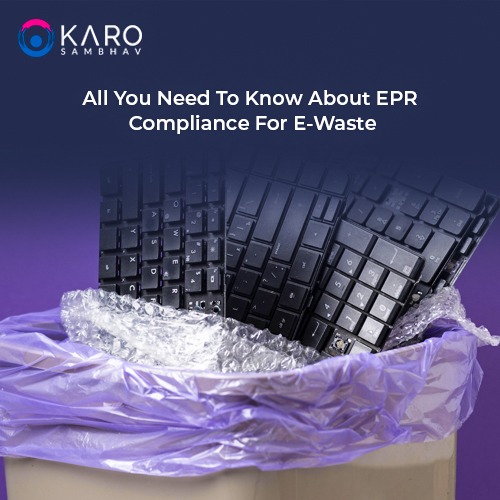All You Need To Know About EPR Compliance For E-Waste

A key component of waste management is Extended Producer Responsibility (EPR), especially when it comes to electronic waste (e-waste), which is expanding quickly as a result of the widespread use of electronic devices. In order to mitigate the risks to the environment and public health that arise from the inappropriate disposal of e-waste, EPR compliance is essential. Everything you need to know about e-waste EPR compliance is provided below - 1. Comprehending EPR Compliance: Extended Producer Responsibility (EPR) is a policy approach in which product importers, manufacturers, and brand owners assume accountability for managing the lifecycle of their items, encompassing collection, recycling, and appropriate disposal. EPR compliance encourages sustainable practices and lessens the load on communities and governments by requiring producers to finance and oversee the end-of-life disposal of their products. 2. Importance of EPR for E-Waste Management: Since e-waste contains danger...

